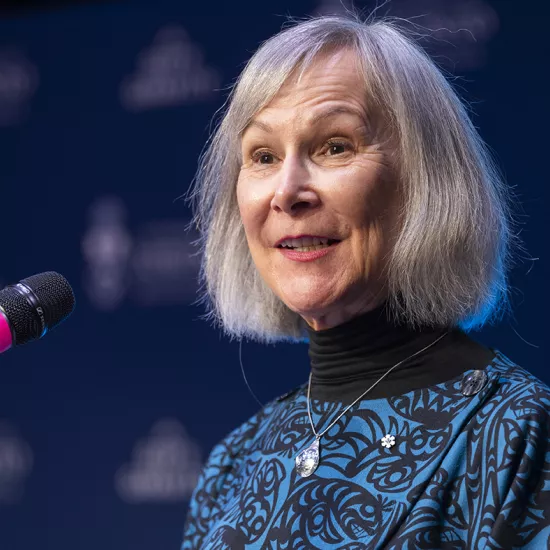Better business: UTM prof on how corporations might change the world

Frequent travellers will be familiar with the little cards, usually propped up on a hotel’s bathroom counter, that encourage guests to help save energy by reusing their towels. Those cards sparked the interest of Laurel Besco, an assistant professor of geography at U of T Mississauga, who wondered how and why the hospitality industry chose to take on energy efficiency when there was no legislation requiring them to act.
“Few people are likely to choose a hotel based on water efficiency, but it’s a norm that the hospitality industry has adopted on a broad level,” she says. “If we could figure out how it originated, we may be able to replicate it to encourage adoption of other norms like reducing greenhouse gas emissions.”
Those little cards will be part of a new study that explores how businesses develop voluntary environmental sustainability standards. Besco will examine energy efficiency measures undertaken by Ontario’s energy generation, building and hospitality sectors.
Besco says that corporate norms can be a powerful tool in helping to achieve wider environmental sustainability targets. “We see corporations moving forward with sustainability initiatives like shadow carbon pricing even though they’re not required to do it,” she says. “But adopting these norms isn’t necessarily a strategic advantage. Sometimes there’s a CEO who feels obligated to make the changes to ‘do our part,’” she says. “Understanding how and why something becomes a corporate norm could help develop new legal instruments and policy tools to effect similar change on a wider scale.”

Besco, who is cross-appointed to the Institute for Management & Innovation, works to connect law and policy creation with her work in environmental geography. “My interest lies in bringing together the knowledge produced in these different disciplines, which aren’t always linked,” she says. She focused on energy efficiency for the study because she says that it’s the one component of the European Union’s 20-20-20 Goals that’s falling behind. “Greenhouse gas emission reduction and climate change initiatives may get more of the attention, but energy reduction has an important—and perhaps more immediately achievable—part to play in meeting environmental sustainability.”
The study will begin in late 2016 with industry surveys and interviews, however Besco hopes to expand the study to include major cities across Canada, England and Scotland. “I would like to see how these norms compare across jurisdictions,” she says. “Using some of this information, countries might work with businesses to develop norms on a more international level.”
“Engendering the Production of Corporate Environmental Norms: Energy Efficiency Targets in Ontario” is funded by UTM’s Research and Scholarly Activity program.



